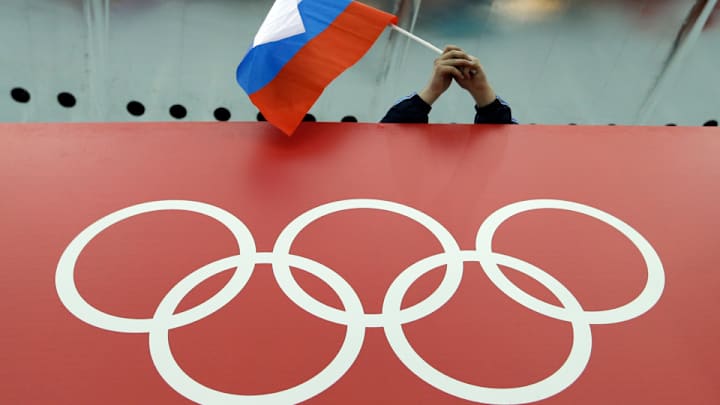WADA report underscores more Russian doping problems

Your teams. Your favorite writers. Wherever you want them. Personalize SI with our new App. Install on iOS or Android.
A new report by the World Anti-Doping Agency has uncovered flaws and obstruction in Russia's purported efforts to improve drug testing within the country.
Russia was deemed non-compliant by WADA on Nov. 18. The International Association of Athletics Federation, track and field's world governing body, subsequently suspended Russia from international competition. Russian athletes were forced to miss March's indoor world championships and have not been allowed to compete at the Diamond League meets to start the season.
From Nov. 18 to May 5, 2,947 total tests were conducted on athletes across all sports, with 1,137 taken in-competition and 1,810 from out-of-competition.
United Kingdom Anti-Doping, which agreed to help Russia clean up its act, conducted 455 tests, but 736 others were were declined or canceled. The tests found 52 positive tests: 49 for Meldonium, one for Meldonium and Tuaminohetane, one for Stanozolol and one for nandrolone.
The new publication, which was published with help from United Kingdom Anti-Doping, shows flawed in- and out-of-competition testing. One particular athlete ran away from testers when he was notified in the mixed zone after a competition. Another athlete tried to bribe testers after a failed attempt at switching urine samples.
“One athletics athlete used a container inserted inside her body (presumably containing clean urine),” the report reads. “When she tried to use the container it leaked onto the floor and not onto the collection vessel. The athlete threw the container into the trash which was retrieved by the DCO [doping control officer]. The athlete also tried to bribe the DCO. Eventually the athlete provided a sample which subsequently returned an adverse analytical finding.”
Several athletes would withdraw from their races or events when doping control officers were present at a meet. The U18 men's hockey team withdrew from the world championships and were replaced by a U17 team due to use of Meldonium.
• WERTHEIM: Breaking down Sharapova's ban
Doping control officers also faced threats from Federal Security Service agents that they would be expelled from the country. They already had trouble with finding meets as competition schedules would be released about 24 hours before their start. Venues or cities would sometimes not be posted as the location but rather justa region of Russia. Other national championships and Olympic qualification meets were held in places ”with restricted access due to ongoing civil conflicts” so testing was limited to none.
The IAAF will meet on Friday to announce whether or not Russia will be allowed to compete at the 2016 Olympics in Rio de Janeiro in August.
- Chris Chavez
